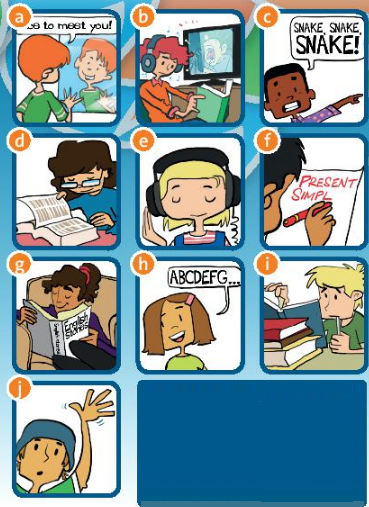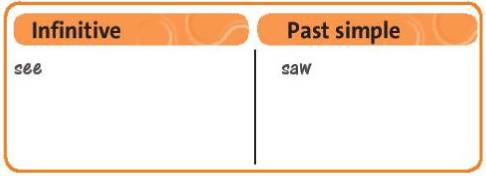1. Check the meanings of verbs 1-10. Then read the text and sentences 1-4. Match verbs 1-10 with the past simple forms in blue. Listen and check.
(Kiểm tra nghĩa của các động từ 1-10. Sau đó, đọc văn bản và các câu 1-4. Nối các động từ 1-10 với các thì quá khứ đơn có màu xanh lam. Nghe và kiểm tra.)
X GAMES SUPERSTARS
Sports in the X Games are always exciting and often dangerous. The games started in 1995 when 500,000 fans travelled to Newport in the USA and watched sports like BMX, skateboarding and motocross.
Our programme today looks at two skateboarders who decided to leam to skateboard when they were very young. They competed in the X Games and became big stars - Tom Schaar, the youngest gold medallist in the history of the games, and Alana Smith, the youngest silver medallist.
1. She/ He learned to skate when she/he was…………………
a. four b. seven c. nine
2. She / He first went to the X Games in…………………
a. Barcelona b. Miami c. Shanghai
3. She/ He did a trick called…………………
a. 900 b. 108 c. 540 McTwist
4. She / He won an X Games medal when she/he was…………………
a. ten b. twelve c. fourteen
1. learn 2. start 3. go 4. win 5. travel | 6. become 7. watch 8. do 9. compete 10. decide |










1. learn - learned (học)
2. start - started (bắt đầu)
3. go - went (đi)
4. win - won (chiến thắng)
5. travel - travelled (du lịch)
6. become - became (trở thành)
7. watch - watched (xem)
8. do - did (làm)
9. compete - competed (thi đấu)
10. decide – decided (quyết định)